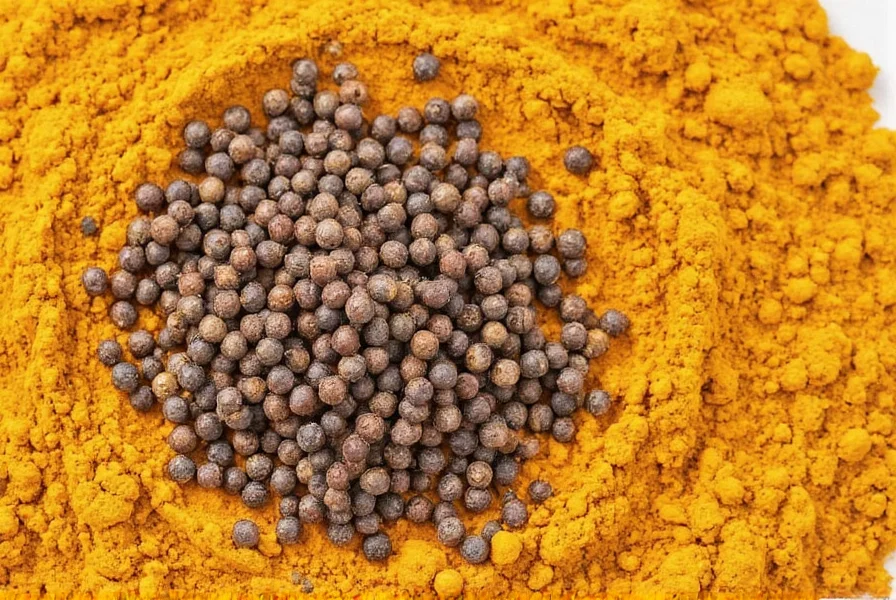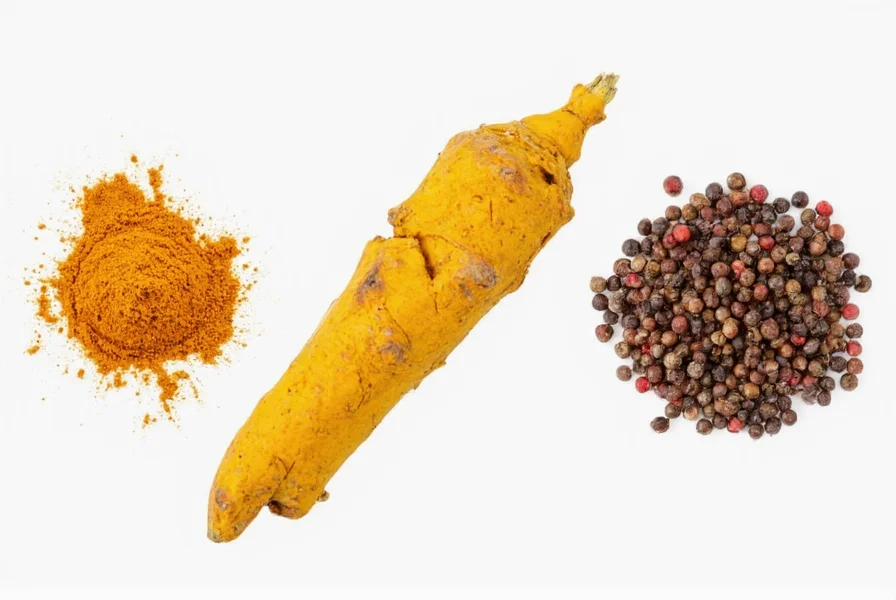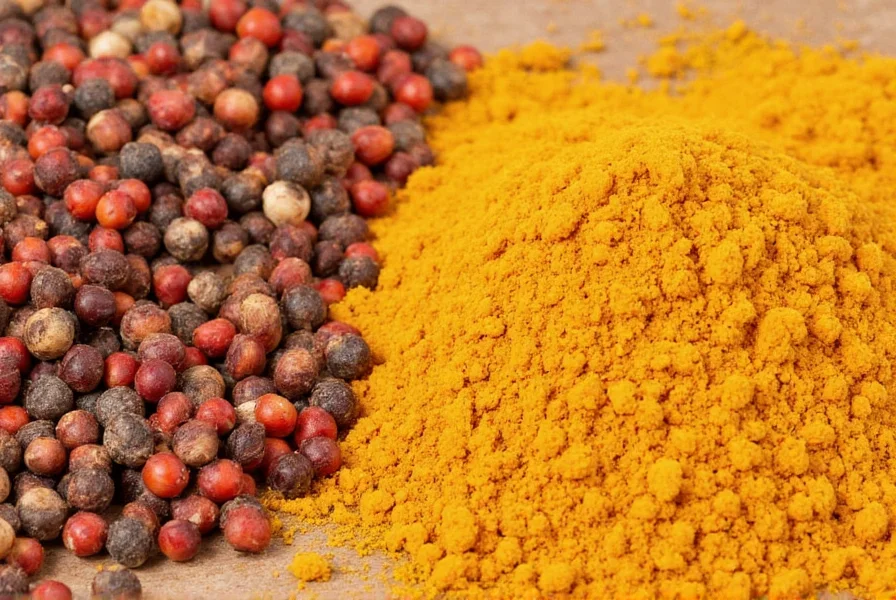For centuries, traditional medicine systems have paired turmeric with black pepper, but modern science has only recently uncovered the precise mechanism behind this ancient wisdom. The active compound in turmeric, curcumin, offers remarkable anti-inflammatory and antioxidant properties, yet suffers from notoriously poor bioavailability when consumed alone. Research shows that adding just a small amount of black pepper—specifically its active component piperine—dramatically increases curcumin absorption in the body.
The Science Behind Turmeric and Peppercorn Synergy
Curcumin, turmeric's primary bioactive compound, faces significant metabolic challenges. When consumed alone, it rapidly metabolizes in the liver and intestinal wall, with studies indicating less than 1% bioavailability. This means most curcumin passes through the system without delivering its potential health benefits.
Piperine, the alkaloid responsible for black pepper's pungency, inhibits certain enzymes in the liver and intestines that break down curcumin. A landmark study published in Planta Medica demonstrated that combining 20mg of piperine with 2g of curcumin increased curcumin bioavailability by an astonishing 2,000%. This dramatic enhancement transforms turmeric from a poorly absorbed compound into a significantly more effective therapeutic agent.
| Compound | Natural Source | Primary Benefit | Bioavailability Enhancement |
|---|---|---|---|
| Curcumin | Turmeric root | Anti-inflammatory, antioxidant | Baseline (1%) |
| Piperine | Black peppercorn | Enzyme inhibition | 2,000% increase when combined |
Research Evidence on Turmeric and Black Pepper Benefits
Multiple clinical studies have validated the turmeric and peppercorn combination. Research in the Journal of Ayurveda and Integrative Medicine found that subjects consuming curcumin with piperine showed significantly higher blood levels of curcumin compared to those taking curcumin alone. These elevated levels correlated with improved markers of inflammation reduction.
A comprehensive review in Food and Chemical Toxicology examined over 700 studies on curcumin and concluded that piperine represents one of the most effective natural bioavailability enhancers. The review noted that the turmeric black pepper combination demonstrates particular promise for managing chronic inflammatory conditions without the side effects associated with conventional anti-inflammatory medications.

Practical Applications for Maximum Benefit
To harness the full potential of turmeric and peppercorn, follow these evidence-based recommendations:
- Ratio matters: Use approximately 1/4 teaspoon of freshly ground black pepper for every teaspoon of turmeric
- Fat enhances absorption: Consume the combination with healthy fats (like coconut oil or olive oil) as curcumin is fat-soluble
- Heat activation: Light cooking helps release curcumin from turmeric's matrix
- Consistency is key: Daily consumption yields better results than sporadic use
For culinary applications, add freshly ground black pepper to golden milk, curries, soups, or salad dressings containing turmeric. When using turmeric supplements, verify they contain piperine or take them with a source of black pepper. The best way to take turmeric with pepper involves consuming them together in the same meal for optimal synergistic effects.
Safety Considerations and Potential Interactions
While generally safe, the turmeric and black pepper combination requires some considerations:
- Piperine may enhance absorption of certain medications, potentially increasing their effects
- Those on blood thinners should consult healthcare providers before regular turmeric consumption
- Excessive black pepper may cause gastrointestinal discomfort in sensitive individuals
- The scientific evidence for turmeric black pepper benefits supports moderate consumption (typically 500-2,000mg curcumin with 5-20mg piperine daily)
Pregnant women and individuals with gallbladder issues should exercise caution with high-dose turmeric. Always consult with a healthcare professional before starting any new supplement regimen, especially if managing chronic health conditions or taking prescription medications.

Conclusion: Maximizing Turmeric's Potential
The turmeric and peppercorn pairing represents a perfect example of traditional wisdom validated by modern science. This natural combination significantly enhances curcumin's bioavailability, transforming turmeric from a compound with limited absorption into a substantially more effective therapeutic agent. By understanding how piperine enhances curcumin absorption and implementing practical strategies for consumption, individuals can maximize the health benefits of this powerful botanical duo. Whether incorporated into daily cooking or taken as supplements, the turmeric black pepper benefits offer a scientifically supported approach to supporting inflammation management and overall wellness.
Frequently Asked Questions
How much black pepper should I take with turmeric for optimal absorption?
Research indicates that just 1/4 teaspoon (approximately 5-20mg) of black pepper per teaspoon of turmeric provides optimal enhancement of curcumin absorption. This small amount of piperine can increase bioavailability by up to 2,000% without causing digestive discomfort for most people.
Can I use white pepper instead of black pepper with turmeric?
Black peppercorns contain significantly higher piperine content than white pepper, which undergoes processing that reduces piperine levels. For maximum curcumin absorption benefits, black peppercorns are preferred over white pepper in the turmeric and black pepper combination.
How long does it take to feel benefits from turmeric with black pepper?
Most studies on turmeric and peppercorn benefits show measurable effects after 4-8 weeks of consistent daily consumption. The timeline varies based on individual factors including health status, dosage, and the specific condition being addressed. Chronic inflammation markers typically show improvement within 6-12 weeks.
Does cooking destroy the benefits of turmeric and black pepper?
Light cooking actually enhances turmeric's benefits by helping release curcumin from the plant matrix. However, prolonged high-heat cooking can degrade some compounds. For optimal results, add turmeric and freshly ground black pepper toward the end of cooking, or consume them in warm (not boiling) beverages like golden milk.
Can I take turmeric with black pepper if I have acid reflux?
Some individuals with acid reflux may experience discomfort from black pepper's piperine content. If you have GERD or similar conditions, start with very small amounts of black pepper (1/8 teaspoon) with turmeric and monitor your response. Consuming the combination with food rather than on an empty stomach may reduce potential irritation.











 浙公网安备
33010002000092号
浙公网安备
33010002000092号 浙B2-20120091-4
浙B2-20120091-4